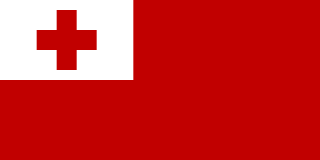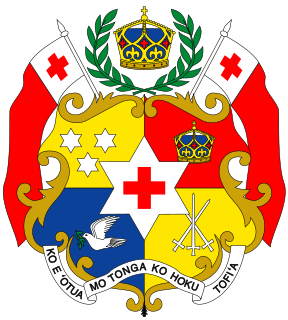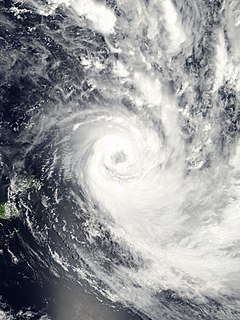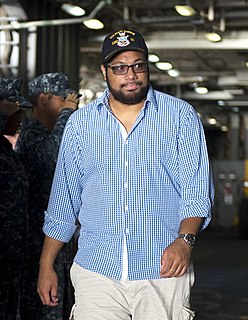
Tonga, officially named the Kingdom of Tonga, is a Polynesian country, and also an archipelago comprising 169 islands, of which 36 are inhabited. The archipelago's total surface area is about 750 square kilometres (290 sq mi) scattered over 700,000 square kilometres (270,000 sq mi) of the southern Pacific Ocean. As of 2021, Tonga had a population of 104,494, 70% of whom resided on the main island, Tongatapu. The country stretches across approximately 800 kilometres (500 mi) in a north–south line. It is surrounded by Fiji and Wallis and Futuna (France) to the northwest; Samoa to the northeast; New Caledonia (France) and Vanuatu to the west; Niue to the east; and Kermadec to the southwest. Tonga is about 1,800 kilometres (1,100 mi) from New Zealand's North Island.

Located in Oceania, Tonga is a small archipelago in the South Pacific Ocean, center of south pacific and about two-thirds of the way from Hawaii to New Zealand. It has 169 islands, 36 of them inhabited, are divided into three main groups – Vava'u, Ha'apai, and Tongatapu – and cover an 800-kilometre (500-mile)-long north–south line. The total size is just 747 km2 (288 sq mi). Due to the spread out islands it has the 40th largest Exclusive Economic Zone of 659,558 km2 (254,657 sq mi).

Nukuʻalofa is the capital of Tonga. It is located on the north coast of the island of Tongatapu, in the country's southernmost island group.
Tongan is an Austronesian language of the Polynesian branch spoken in Tonga. It has around 187,000 speakers and is a national language of Tonga. It is a VSO (verb–subject–object) language.

William Charles Mariner was an Englishman who lived in Tonga from 29 November 1806 to (probably) 8 November 1810. He published a memoir, An Account of the Natives of the Tonga Islands, in the South Pacific Ocean, which is one of the major sources of information about Tonga before it was influenced significantly by European cultures and Christianity.

Peau Vavaʻu Ltd was an airline based at the Pacific Royale Hotel in Nukuʻalofa, Tongatapu, Tonga. It operated domestic services. Its main base was Fuaʻamotu International Airport, Tongatapu, with hubs at Lifuka Island Airport and Vavaʻu International Airport.

The Legislative Assembly of Tonga is the unicameral legislature of Tonga. The assembly has 25 members in which 17 members elected by majority of the people for a 5-year term in multi-seat constituencies via the single non-transferable vote system. There are 8 members elected by the 33 hereditary nobles of Tonga. The Assembly is controlled by the speaker of the House who is elected by majority of the elected members of Parliament and constitutionally appointed by the king.
Matangi Tonga is an online newspaper providing Tongan news in both English and Tongan. It is operated by Vava'u Press. The newspaper's Nukuʻalofa office was destroyed in the fires and rioting in November 2006.
Sisia is an island in Tonga. It is located within the Vava'u Group in the far north of the country.

Ovaka is an island in Tonga. It is located within the Vava'u Group in the far north of the country. It is 2800 meters long east–west, and more than 800 meters wide at its widest point. The namesake village is located on the northeast coast. The island had a population of 96 in 2021.

Lifuka Island Airport, also known as Salote Pilolevu Airport or Haʻapai Airport, is an airport on Lifuka in Tonga. The airport is located 5 km (3.1 mi) north of the capital Panga, and is only served domestically, roughly 40 minutes by flight to Tongatapu and 30 minutes to Vava'u. Taxis serve the airport, and services include a cafe inside the terminal.

Vaimalō, is a village in the western district of Vavaʻu in Tonga. The population is 114.
Aleamotuʻa was the 18th Tu'i Kanokupolu of Tonga, the third lineage of Tongan Kings with the political and military power who ruled in support of the Tu'i Tonga.

General elections were held in Tonga on 23 and 24 April 2008 to elect members of the Legislative Assembly. The nobles were elected on 23 April, and the nine people's representatives on 24 April. A total of 32,000 people turned out to vote, giving a turnout of 48%.
Samiu Kuita Vaipulu is a Tongan politician and Cabinet Minister. He was the Tongan Deputy Prime Minister from 2010 to 2014 and is currently Minister for Trade and Economic Development.

Siosa'ia Ma'ulupekotofa Tuita is a Tongan royal and diplomat. He is the current Chief Tuita, Lord Tuita.

Severe Tropical Cyclone Waka was one of the most destructive tropical cyclones ever to affect the South Pacific Kingdom of Tonga. Waka originated within the near-equatorial trough in mid-December 2001, although the system remained disorganized for more than a week. The storm gradually matured and attained tropical cyclone status on December 29. Subsequently, Waka underwent rapid intensification in which it attained its peak intensity as a Category 4 severe tropical cyclone on December 31, with winds of 185 km/h (115 mph). Shortly thereafter, it passed directly over Vavaʻu, Tonga, resulting in widespread damage. By January 1, 2002, the cyclone began to weaken as it underwent an extratropical transition. The remnants of Waka persisted for several more days and were last observed near the Southern Ocean on January 6.
Though it is no longer practiced today, Tonga's ancient religion was practiced for over 2000 years. Missionaries arrived and persuaded King George Tupou I to convert to Christianity; he ordered and strictly enforced that all Tongans become Christian and no longer practice the ancient polytheistic religion with its supreme god Tangaloa.

Fatafehi Fakafānua, known before ascending to his title as Fatafehi Kinikinilau Lolomana‘ia Fakafānua, is a Tongan politician, Lord of the Realm and the Speaker of the Tongan Legislative Assembly. He is the 8th Fakafānua.
Sulieti Fieme'a Burrows is an artist and expert in the creation of tapa cloth. Born in Tonga, Burrows moved to New Zealand in the 1970s, bringing her knowledge of ngatu, the Tongan form of tapa, and other traditional Tongan crafts. Along with her daughter, Tui Emma Gillies, she has worked to share her expertise and revitalize the art of tapa.













